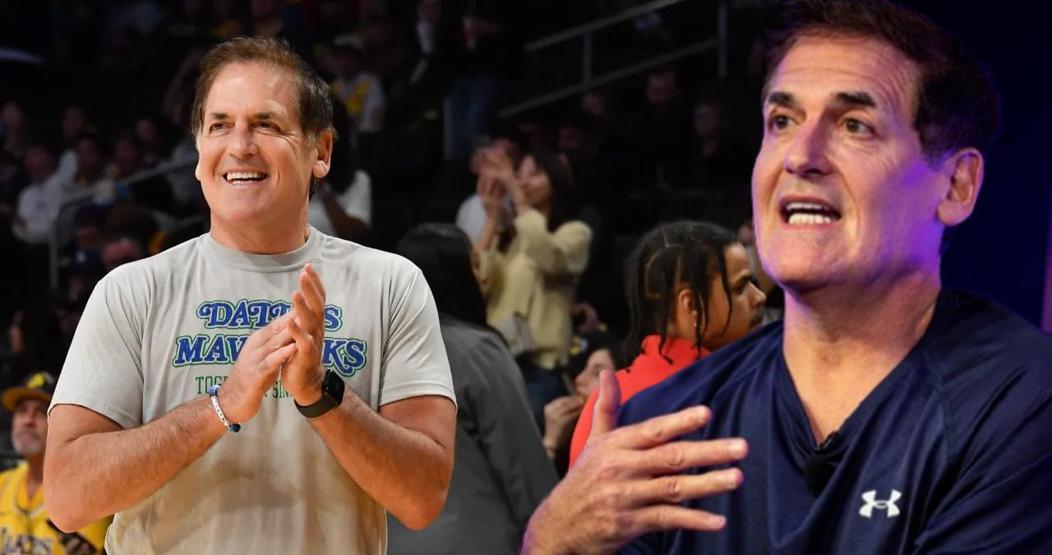For years, the whispers of NBA expansion have echoed through boardrooms and fan forums, fueling speculation about new cities joining the league`s elite ranks. Las Vegas, Seattle, and even Mexico City are frequently mentioned as prime candidates, brimming with the potential to host a new franchise. However, while Commissioner Adam Silver has hinted at ongoing analyses by team owners, a starkly pragmatic view comes from an unexpected corner: Dallas Mavericks minority owner, Mark Cuban. His perspective suggests that the much-anticipated expansion might be more of a distant dream than an imminent reality, grounded firmly in the cold, hard logic of economics.
The “Expansion Fee” Illusion: A Loan, Not a Windfall
Cuban, known for his no-nonsense approach to business, dissects the common perception of the expansion fee with a surgeon`s precision. What many might see as a massive cash injection – potentially billions of dollars per new team – Cuban frames as less of a bonus and more of a protracted loan. Imagine a multi-billion-dollar fee, paid by a new ownership group. Sounds good, right? Not so fast, says Cuban.
“The expansion fee is just a loan. You loan me let`s say its $6 billion and I pay back that loan. I give you 1/31 — because there`s 30 teams now, there will be 31. I get 1/31 of the TV money, and then it`s only a question of how long it takes. So if the TV money, let`s just make it an easy number, is $100 million, and it`s $6 billion so that means in 60 years the loan will be paid off with no interest. So why split up the pie any further?”
His point is clear: existing owners, who would split this fee, would then have to share all future revenues – crucially, the lucrative national television money – with one or two additional entities. The payout period for this “loan,” with no interest, could stretch for decades. From a purely financial standpoint, many owners might conclude that diluting their share of an already valuable and growing pie simply isn`t worth the immediate, albeit large, expansion fee. It’s a classic case of short-term gain versus long-term dilution.
The Perils of Pie Splitting: Big Markets vs. Small Returns
This brings us to Cuban`s second critical objection: the existing imbalance in revenue contribution and distribution. NBA teams, particularly those in larger markets like the Los Angeles Lakers or New York Knicks, generate significantly more “basketball-related income” (BRI) than their counterparts in smaller markets. However, due to the league`s revenue-sharing mechanisms, a portion of these larger market earnings is redistributed to support smaller franchises, aiming for a more equitable competitive landscape.
Cuban argues that adding more teams, particularly if they land in smaller or less lucrative markets, would only exacerbate this situation. The math is simple: more teams mean more slices of the same pie. Larger market teams, already contributing more than they receive back, would see their net returns dwindle further. For these cornerstone franchises, who essentially subsidize the league`s broader health, the economic incentive to vote for expansion diminishes significantly. Why invite more guests to the feast if they`re only going to shrink everyone`s portion, especially when some guests bring more to the table than others?
Players, Profits, and the CBA: A Looming Showdown
The expansion debate isn`t just about owners` wallets; it`s intricately linked to the players` financial interests and the current Collective Bargaining Agreement (CBA). The NBA`s new CBA, with its stringent “second tax apron” rules, has already made teams incredibly cautious with their spending. We`ve witnessed numerous championship contenders offloading talent to avoid punitive luxury tax penalties, directly impacting player movement and salary potential.
Cuban believes this restrictive financial environment, coupled with the potential for further revenue dilution through expansion, will inevitably lead to a showdown. He “would not be surprised if the players take the opt out” at the CBA`s five-year mark, following the 2028-29 season. A renegotiation would likely see players pushing for a larger share of the overall revenue, a move that would further complicate the economics for owners considering expansion. It`s a delicate dance between maintaining owner profitability and ensuring competitive player salaries, with expansion acting as a disruptive third party.
Europe: The Undiluted Revenue Frontier
While Mark Cuban remains skeptical about domestic NBA expansion, he is a fervent supporter of the league`s reported plans to establish a separate NBA league in Europe. This distinction is crucial and highlights his core economic philosophy.
“That`s just a new source of revenue, and we`re a global sport. So I think that`s a net positive if they can make it work.”
An NBA Europe league presents a fundamentally different economic proposition. Instead of diluting existing revenue streams within the current NBA structure, it offers a brand-new, entirely separate revenue source. As basketball`s global appeal continues to surge, fueled by an influx of international talent into the NBA, tapping into the European market with its own dedicated league represents a strategic move to generate fresh income. It’s an expansion of the NBA brand, not a division of its current spoils. This approach allows the league to grow its global footprint and financial might without the internal financial conflicts that plague domestic expansion proposals.
In essence, Mark Cuban`s analysis cuts through the romanticism of expansion to reveal the underlying economic realities. While adding new teams might seem like a natural progression for a thriving league, the financial calculus for existing owners, the implications for player salaries under the current CBA, and the strategic appeal of truly new revenue streams (like a European league) paint a complex picture. For now, it seems the NBA`s growth might look more like global diversification than simply adding another pin to the map in the United States. Owners, after all, are in the business of increasing their share, not diminishing it.

